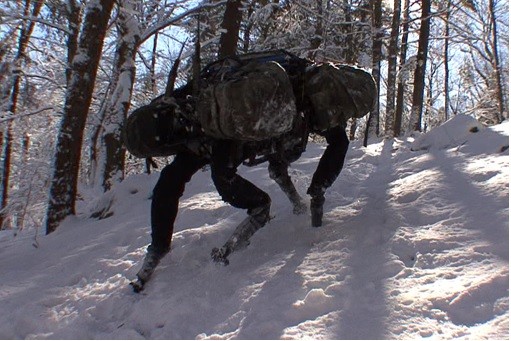The United States military is now having second thoughts on utilizing robots onto the battlefield when trials revealed that the quadrupedal robot known as Big Dog apparently possesses a crucial flaw of being too noisy for the field.
These Big Dog robots were first introduced almost 10 years ago, which are developed by robotics company Boston Dynamics based in Massachusetts, that was eventually bought by Google in 2013. These nightmarish headless machines that resemble hulking, dystopian dogs were made famous after videos were released demonstrating how they can keep up the pace even on difficult terrain or slippery surfaces, and even keeping its balance after strong kicks on its side while walking.
The futuristic robots were designed and developed for the military but unfortunately received ill reviews from the U.S. marine corps while testing one version of the quadruped from Boston Dynamics known as the LS3 or the Legged Squad Support System.
According to Kyle Olson of the U.S. marine corps' Warfighting Lab, when the marines were using the robot, the main challenge was realizing the potential of these due to the limitations of the robot itself. Due to its loudness, the robot is at risk of revealing the military's position.
This noise coming from the robot originates from the larger models of Boston Dynamics that have already become recognizable but soldiers were not too ken on working side by side with these noise-making machines.
Engineers and scientists developed an alternative, a quieter version called "Spot" that uses electric power as opposed to a petroleum engine which did solve this problem, however, it could not carry as much as the LS3 where Spot and LS3 are reportedly now in storage.
Boston Dynamics was purchased by Google which still aimed to continue existing military contracts that included one from DARPA (Defense Advanced Research Projects Agency) that is estimated at US $10.8 million however, the company is now intending to rely on industry automation instead of the U.S. military for funding.



























